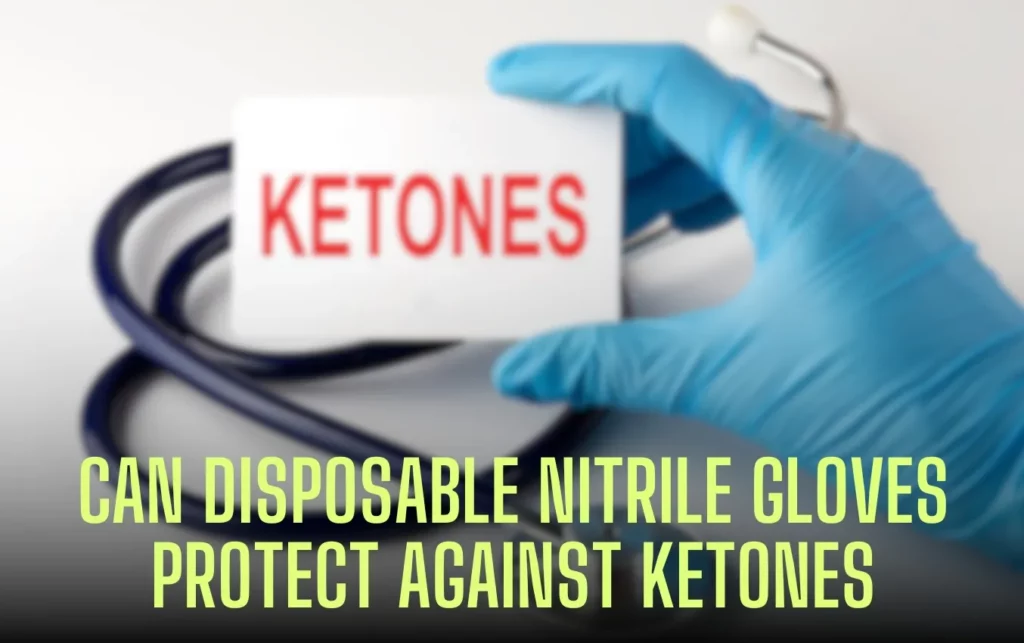Ketones are one of the chemicals that nitrile gloves may not fully protect against. While nitrile gloves are praised for their ability to shield hands from a variety of harmful substances, ketones, along with strong acids, alcohols, and other specific chemicals, can potentially permeate the material. Understanding the limitations of nitrile gloves is crucial for ensuring proper protection in various work environments. Let’s examine deeper into the world of disposable nitrile gloves and their effectiveness against ketones.
Table of Contents
What Do Nitrile Gloves Protect Against?

Chemicals and Substances
An imperative aspect of nitrile gloves is their ability to protect against various chemicals and substances. These gloves offer an excellent barrier against most water-based solutions, organic solvents, oils, greases, and even some electric shocks. They shield the user’s hands from harsh chemicals like weak acids, weak caustics, fuels, petroleum products, and household detergents. However, it’s important to note that nitrile gloves do have limitations and may not provide complete protection against strong acids, alcohols, or esters.
Physical Hazards
Against physical hazards, such as heat and punctures, nitrile gloves offer a resilient defense. Made from thick rubber materials, they are heat-resistant and puncture-resistant, making them suitable for use in high-heat environments or situations where sharp objects pose a risk. Additionally, nitrile gloves do not conduct electricity, providing insulation against electric shocks. This makes them a preferred choice for tasks involving electrical components where protection from electrical shock is crucial.
What Don’t Nitrile Gloves Protect Against?
Specific Chemicals
Against specific chemicals, nitrile gloves have limitations. They do not protect against ketones, strong acids, alcohols, and certain hydrocarbons like aromatic and halogenated hydrocarbons. These substances can penetrate nitrile gloves and cause potential harm to the skin.
Biological Agents
With regards to biological agents, nitrile gloves are not completely reliable. Bacteria and viruses can pass through the material of nitrile gloves, making them less effective in protecting against microbial contamination. It’s important to take additional precautions when dealing with biological hazards, as nitrile gloves may not provide sufficient protection.
Although nitrile gloves offer great protection against a wide range of chemicals, it’s crucial to be aware of their limitations. Understanding what nitrile gloves do and don’t protect against can help you make informed decisions when choosing your protective gear.
Importance of Understanding Nitrile Gloves’ Limitations
There’s a crucial need to grasp the limitations of nitrile gloves to ensure their effectiveness in protecting against various chemicals. Knowing what nitrile gloves cannot protect against can prevent accidents and injuries in the workplace.
Preventing Accidents and Injuries
Preventing accidents is always a top priority, especially when working with hazardous chemicals. Understanding the limitations of nitrile gloves can help avoid potential injuries and keep you safe while handling dangerous substances.
Ensuring Proper Use
An necessary aspect of using nitrile gloves effectively is ensuring proper use. It’s vital to choose gloves that fit well and inspect them regularly for any damage. By following these simple guidelines, you can maximize the protective benefits of nitrile gloves and minimize any risks associated with their use.
It’s necessary to change nitrile gloves regularly, avoid touching your face while wearing them, and store them properly to maintain their integrity. By adhering to these practices, you can ensure maximum protection against a wide range of chemicals and substances.
Upon reflecting on the information presented, it becomes clear that disposable nitrile gloves do not provide protection against ketones. While these gloves offer a high level of resistance to many chemicals and substances, ketones are one of the few substances that can permeate through nitrile material. It is crucial to be aware of this limitation when working with ketones to ensure proper safety precautions are taken. Always prioritize safety and choose the right gloves for the task at hand.
